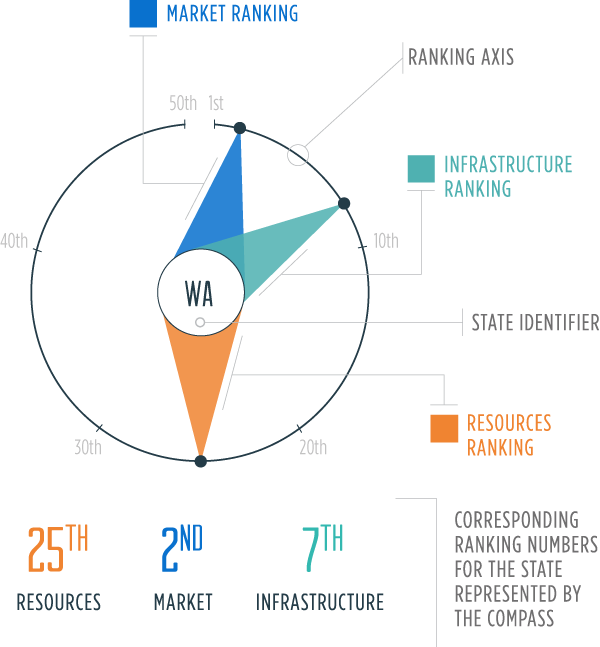Electric South > North Carolina
Resources: A measure of total energy production and consumption per capita
Market: The cost of consumption, measured in electricity prices and gasoline taxes
Infrastructure: Capacity to generate and refine energy sources; miles of pipelines
North Carolina has no crude oil reserves, production, refineries or pipelines. Petroleum product imports are brought into the state through the Port of Wilmington.
Three major natural gas pipelines currently cross the state, and a planned expansion in the future could link the state to shale gas production from the Marcellus and Utica shales to the north.
North Carolina's motor gasoline tax is among the highest in the nation.
Production trillion btu
Oil
Gas
Coal
Wind
Solar
Hydro
Biofuel
Nuclear
net energy Production trillion btu
Consumption trillion btu
Oil
Gas
Coal
Renewable
Nuclear
Gasoline Tax total state + federal, 2014
NC
USA
Key Policies
Requires investor-owned electric utilities to meet 12.5% of their retail electricity sales through renewable energy resources or energy efficiency measures by 2021. Rural electric cooperatives and municipal electric suppliers must acquire 10% of retail electric sales from renewable resources by 2018.
Requires motor gasoline to be formulated to reduce emissions in several of the more densely populated counties in the state.
Requires a permit and compliance bond for oil and gas well drilling. Permit fees begin at $3,000. Compliance bonds begin at $5,000 per well and increase for deeper wells.
Electricity net production, trillion btu
NC
USA

